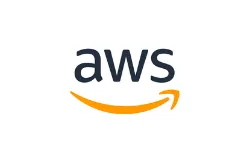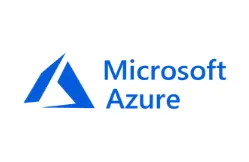UI Developer Interview Questions And Answers
If you are searching for UI developer interview questions and answers, you have reached the right place. Apponix Technologies, Bangalore provides you with relevant questions and answers that will help you to acquire your dream job. Our UI developer Online training will help you to get the skills that are necessary to become a UI developer. Our training course covers topics such as basics of UI, CSS properties, tags in HTML, JavaScript, elements, data structures, templating, HTML5, responsive design, etc.
Today, UI developers get salaries ranging from $85000 to $111000. The demand for UI developers will be increasing in the future years. So these questions and answers will help you to get a job. Many students are placed in famous organizations and companies. This article will help you to have progressed in your career.
Here Are The Top Interview Questions And The Tips In Facing The Interview.
1. What is Chef?
Chef is a well-structured management tool that is used to transfer the infrastructures into codes.You can develop and use the scripts for automation and IT processes, with the help of Chef.
2. Differentiate between CSS2 and CSS3.
Answer:- CSS2 is comprised as Single whereas CSS3 is decomposed into modules.
3. What are the pros of using an external style sheet?
Answer:- The benefit of using an external style sheet is that we can share among pages and folders in our application.
4. How can we set margins in CSS?
Answer:- We can set margins as follows.
margin: 25px 50px 75px 100px.
It will be applied to the specified element as the top, right, bottom, and left.
5. What are the different ways to access HTML elements in JavaScript?
Answer:- Get Element by Id and Get element by Name are the common ways to access HTML elements.
6. What are the ways to display hyperlinks in web pages?
Answer:- We can use the Href tag to set a hyperlink and we can use email as a link.
7. What is the required attribute in HTML?
Answer:- It is used for doing mandatory validation to get inputs like text, email, password, and PAN.
8. What is the use of or operator?
Answer:- It is used to check the result of an expression. It returns true if anyone returns true. It returns a Boolean value.
9. What is Quirks mode?
Answer:- It is a default change method that varies from browser to browser.
10. How will you distinguish between a bulleted list and a numbered list?
Answer:- Bulleted list utilizes < ul> which stands for an unordered list, whereas the numbered list uses which stands for an ordered list.
11. How do you optimize a website's assets?
Answer:- By File concatenation, file compression data value, CDN hosting, offloading the data assets, reorganizing and refining data code, etc.
12. What do you mean by Web accessibility?
Answer:- Web accessibility means web for uniquely abled or disabled people. HTML5 commenced WAI-ARIA by which regular disabled people can associate, understand, and browse any website.
13. What are the new features in HTML5?
Answer:- HTML5 is a new standard for developing web and mobile applications. It offers several new features. They are,
-
New Semantic tags
-
Form Input controls
-
Basics of HTML 5 graphics
-
Html5 media controls
-
Feature detection using modernizer
-
Widely used HTML5 APIs.
14. What is the geolocation API?
Answer:- Geolocation API helps us in finding local businesses or showing users location on a map.
15. What is the difference between
Answer:- Both svg and canvas are two impressive elements introduced by HTML5 to address the graphical scenarios on the web.
SVG
-
Support for event handlers
-
Best suited for large space rendering areas.
-
Not suited for gaming applications
-
Slow rendering if complex COMPLEX
-
No support for event handlers
-
Poor text rendering capabilitie
-
Save the final image as .png or .jpg
-
Well suited for graphic-intensive games.

16. A CSS can be integrated into a webpage in how many ways?
Answer:- A CSS can be integrated into a webpage in three ways. They are,
Inline styles:- It is used to apply a unique style to a single HTML element. It make use of the style attribute inside the HTML element.
Internal styles:- It is similar to Inline styles. It uses the style attribute inside tag.
External style sheets:- It may be linked to an HTML document through HTML's link element. The link tag is placed in the document tag.
17. How would you differentiate between the Class selector and ID selector?
Answer:- Class selector is not unique and we can have multiple classes per element. ID selector is a unique identifier. Once we use the ID in one element, we cannot use it anywhere else.
18. What is Pseudo-element?
Answer:- A CSS pseudo-element is used to style specific parts of an element.
19. What is Absolute positioning?
Answer:- An element with Absolute positioning is positioned relative to the nearest positioned ancestor.
20. What is Relative positioning?
Answer:- An element with Relative positioning is positioned relative to its normal position.
21. What is Responsive Web Design?
Answer:- Responsive Web Design is the approach of creating websites that automatically respond and adjust themselves to look clean and uniform across all devices.
22. What are Media Queries?
Answer:- Media queries use Conditional CSS rule and style is applied if those conditions are satisfied.
23. What are Glyphicons?
Answer:- They are icon fonts that you can use in web projects.
24. What is Jumbotron?
Answer:- It is used to showcase the key content on your website.
25. What is HTML DOM?
Answer:- The HTML DOM is an accepted guideline for how to access, update, add, or remove HTML elements. DOM provides a structural representation of the HTML document. An HTML document is built using objects. DOM represents it in an object-oriented way that can be manipulated using scripting languages like JavaScript.
26. What are JavaScript Objects?
Answer:- JavaScript Object is an entity with property and type. It is a variable attached to the object. These properties define the features of the object.
27. What are undeclared and undefined variables?
Answer:- Undeclared variables do not exist in a program and are not declared. A runtime error is encountered, if the program tries to read the value of an undeclared variable. Undefined variables are declared in a program but have not given any value. An undefined value is returned, if the program tries to read the value of an undefined variable.
28. What is a Prompt box?
Answer:- Prompt box allows users to enter data.
29. What is Typescript?
Answer:- Typescript is a superset of JavaScript. It enhances the power of JavaScript.
30. What is a Package manager?
Answer:- A package manager helps developers to share and install packages, and manage version upgrades.
31. What is Webpack?
Answer:- Webpack is an open-source module bundler for modern JavaScript applications. It considers modules with dependencies and generates static assets representing those modules.
32. What are Structural and Attribute directives?
Answer:- Structural directives affect the whole area in DOM. Attribute directives affect or change the element they are added to.
33. What is JSX?
Answer:- JSX or JavaScript extension is a React extension that allows writing JavaScript code that looks like HTML.
34. What is Virtual DOM?
Answer:- Virtual DOM is an abstraction of the HTML DOM. It is not heavy and detached from the browser-specific implementation details.
35. How do you distinguish between React and Angular?
Answer:- React is the only view of MVC but Angular is a full MVC framework. React uses Virtual DOM but Angular uses real DOM.
36. What is a Dependency injection?
Answer:- Dependency injection is a coding pattern in which a class receives its dependencies from an external source rather than creating them itself.






.webp)
